Iraq inquiry: Soldiers' families threaten to sue Chilcot
- Published
Soldier's father, Reg Keys: Sir John you've let us down, get on with it"
Families of British soldiers killed in Iraq are threatening to take legal action against Sir John Chilcot, who led the inquiry into the conflict.
He has said publication of his report has been delayed to allow those who have been criticised to respond.
Lawyers for the soldiers' families claim he acted unlawfully by refusing to set a deadline for publication.
The five-member panel, led by Sir John, began its work in 2009 and held its last hearings in 2011.
The inquiry took evidence from hundreds of witnesses, including former Prime Minister Tony Blair, and is set to cost taxpayers £10m.
The delays, to allow those who might face criticism in the report to argue their case, have led to frustration among some of the soldiers' families.
'Open wound'
Lawyers acting for 29 of them have written to Sir John calling for him to set a deadline for witnesses to respond and to promise the report will be published by the end of the year or they will take their case to the High Court.
Reg Keys, whose son L/Cpl Thomas Keys was killed in Iraq in 2003, said he was "losing patience" and the families had come to the "end of our tether".
"It's got to the stage now where Iraq is like an open wound and it is continually prodded and opened with all these delays," he told the BBC.
Since the death of his son, Mr Keys has been campaigning on Iraq. He even stood against Tony Blair, external in the 2005 general election.
He said: "The families want closure now, we need to know why our loved ones died.
"Those who were seriously wounded and maimed, those families will want to know why their loved ones have ended up in that state."
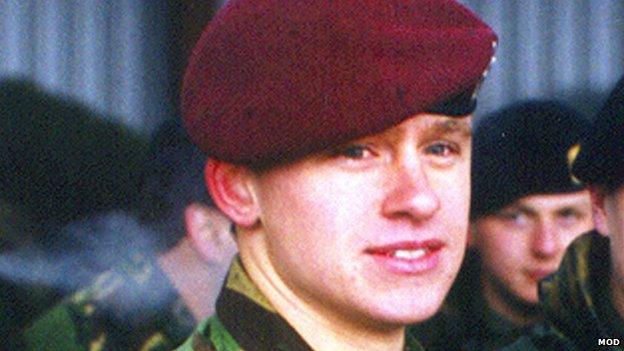
L/Cpl Thomas Keys was killed in Iraq in 2003
Matthew Jury, one of the solicitors representing the families, said the long delay has caused them further pain.
"This suffering has only been compounded over time," he said.
"They describe it to me as a black cloud hanging over their heads and the only way to disperse that cloud, for them to get some degree of closure, is for this report to be published and for them to finally know the truth."
The families say the delay is caused by the "Maxwellisation process", a convention whereby individuals criticised in official reports have the right to see and respond to criticisms before publication.
Mr Keys said: "That Maxwellisation process has now been running for two years. Some haven't even bothered to respond to the criticism. And we feel Sir John needs to give a deadline to these people now that have been criticised."

The term Maxwellisation is named after the controversial newspaper proprietor, Robert Maxwell, took the Department of Trade and Industry to court after it published a highly critical report into his business dealings in 1969.
A judge ruled that the DTI had "virtually committed the business murder" of Robert Maxwell
Since then, many official inquiries have invited people criticised in reports to see extracts relating to them before publication.

Conservative MP Sir Crispin Blunt, chairman of the Commons Foreign Affairs Committee, told the BBC that the Maxwellisation process would provide "the best chance of getting it right".
"This is a very serious inquiry into an immensely serious historic issue. If the inquiry needs time I believe, on balance, it should be given it."
Jack Straw, who was foreign secretary at time of the Iraq war and gave evidence to the Chilcot inquiry, said: "I've always understood their (the families') frustration and obviously my frustration simply as a witness and a major decision-maker are tiny compared to those of the bereaved families.
"But Sir John Chilcot has made it clear that the delays which have occurred are nothing whatever to do with witnesses."
David Cameron recently said he was "fast losing patience" with the process and wanted to see a timetable for the publication of the report.
Head of the civil service Sir Jeremy Heywood said the inquiry had repeatedly turned down offers of extra assistance to help speed up the report.
Sir John, who is paid £790 a day as head of the inquiry, has always declined to say exactly when the report would be released but has said he wholeheartedly shares the wish for it be made available as soon as possible.
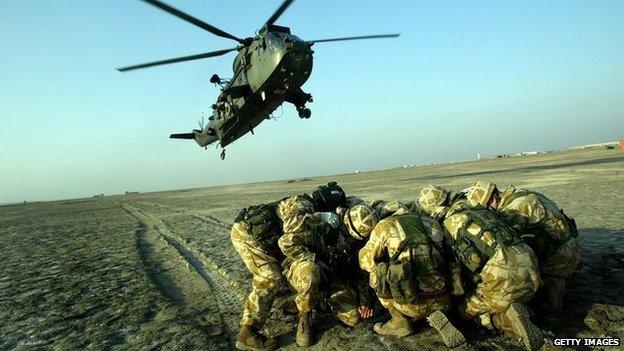
The inquiry is looking at the decision to go to war and UK involvement in Iraq until 2009
- Published21 January 2015
- Published29 January 2015
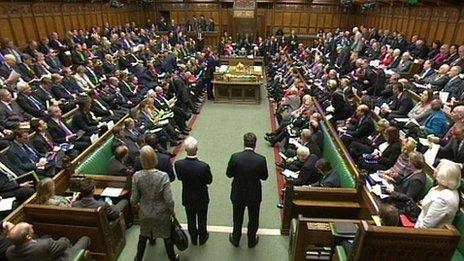
- Published21 July 2015
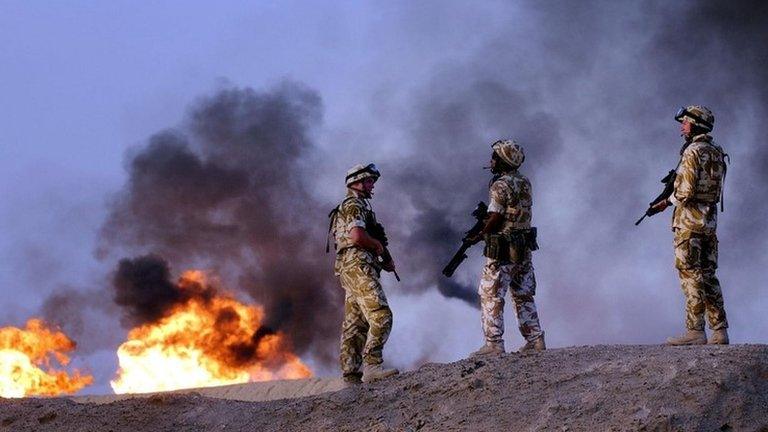
- Published3 November 2014
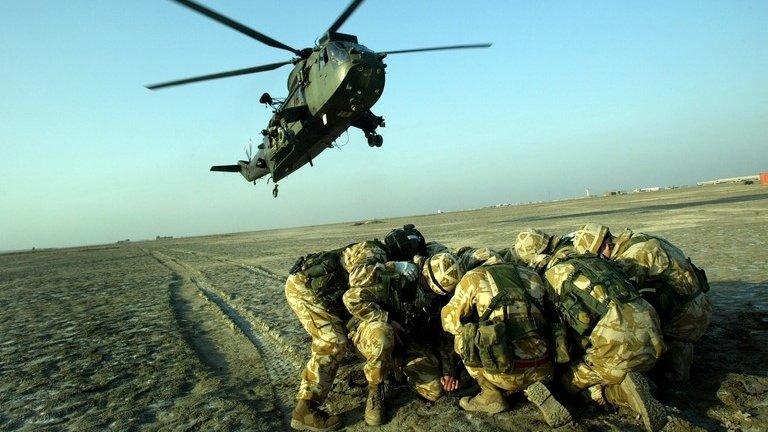
- Published8 December 2010
- Published30 July 2010